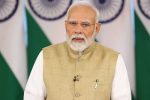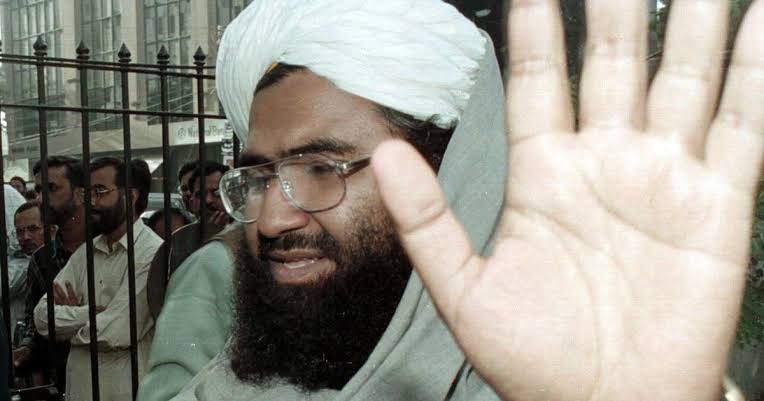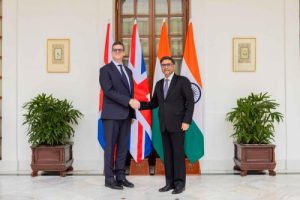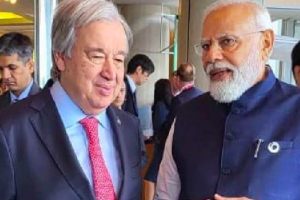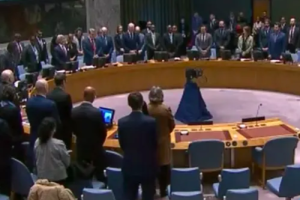The listing of Jaish-e-Mohammed (JeM) chief Masood Azhar as an international terrorist by a UN sanctions committee after China dropped its longstanding opposition has been welcomed by several Security Council members as a significant achievement in making the linchpins of terrorism accountable for their violence.
US Permanent Representative Jonathan Cohen told the Council on Monday, “Azhar’s listing shows that the international community can and will hold terrorists accountable for their actions”.
Washington was pleased that Azhar was designated for sanctions by its panel dealing with the Islamic State and Al Qaeda, Cohen said during a Council briefing on its committees dealing with terrorism.
The Committee “must continue to keep up its pace to adapt to the evolving threat”, he added.
US pressured China to end its decade-long opposition to Azhar being put on the terrorists sanctions list by the panel known as the 1267 Committee named for the Council resolution setting it up. The JeM boss behind several attacks on India was finally added to the list on May 1.
China’s Counsellor Shaojun Yao assured Beijing’s cooperation with the 1267 Committee, which he said was an important counter-terrorism mechanism with a “significant role in assessing terrorist threats and strengthening sanctions measures”.
JeM, which had attacked India’s Parliament in 2001 and the Pathankot Air Force base in 2016, carried out a suicide bombing of a bus transporting Central Reserve Police Force personnel in February killing more than 40 troopers.
Germany’s Permanent Representative Christoph Heusgen said: “I think it was a good signal, good sign for the work of this committee that we were able earlier to have the listing of Mazhoor Masood”.
“It was difficult for some but it was very important that we were able to overcome these obstacles and list him,” he added in a reference China’s earlier opposition.
On preventing terrorists from gaining access to weapons of mass destruction, Heusgen welcomed the holding of the India-Wiesbaden Conference on “Securing Global Supply Chains through Government-Industry Partnerships”.
India organised the conference in New Delhi last year in coordination with the Council committee on implementing Council Resolution 1540 mandating action to stop proliferation of these weapons to terrorists. Germany launched the initiative known as the Wiesbaden Process to promote the implementation of the resolution.
Poland’s Permanent Representative Joanna Wronecka said: “I would like to underline a significant achievement made by all Security Council Member States which allowed listing of a person responsible for a deadly terrorist act in the state of Jammu and Kashmir”.
“We welcome progress achieved and encourage all states to work together in order to hold perpetrators, organisers and sponsors of acts of terrorism accountable,” she said.
“It is a matter of the highest importance to keep the sanctions list updated and stay focused on the current threat,” she added.
Yao said that Beijing supported the work of the committee in “closely communicating with the countries concerned and fostering cooperation with regional and sub-regional counter-terrorism mechanisms with a view to making greater contribution to international counter terrorism efforts”.
Before changing its stance this month, China had resisted Azhar’s designation as a terrorist subject to sanctions because it asserted that evidence of his role in terrorism was insufficient.
China hoped that the committe will “base its work on solid evidence and consensus among parties so as to safeguard the authority and the effectiveness of the sanctions mechanism”, Yao said.
Russia’s Deputy Permanent Representative Gennady Kuzmin said that 1267 Committee “has proven itself to be one of the most effective of the Council counter-terrorism mechanism”.
But on the work of the Counter-Terrorism Committee and the UN’s agencies against terrorism, he cautioned against being diverted from their primary task.
“Paying to too much attention to the secondary elements” and filling out the agenda with human rights matters to replace the the job of counter-terrorism with the famous idea of preventing violent extremism distracts states from implementing their primary obligations in this area,” Kuzmin said.



